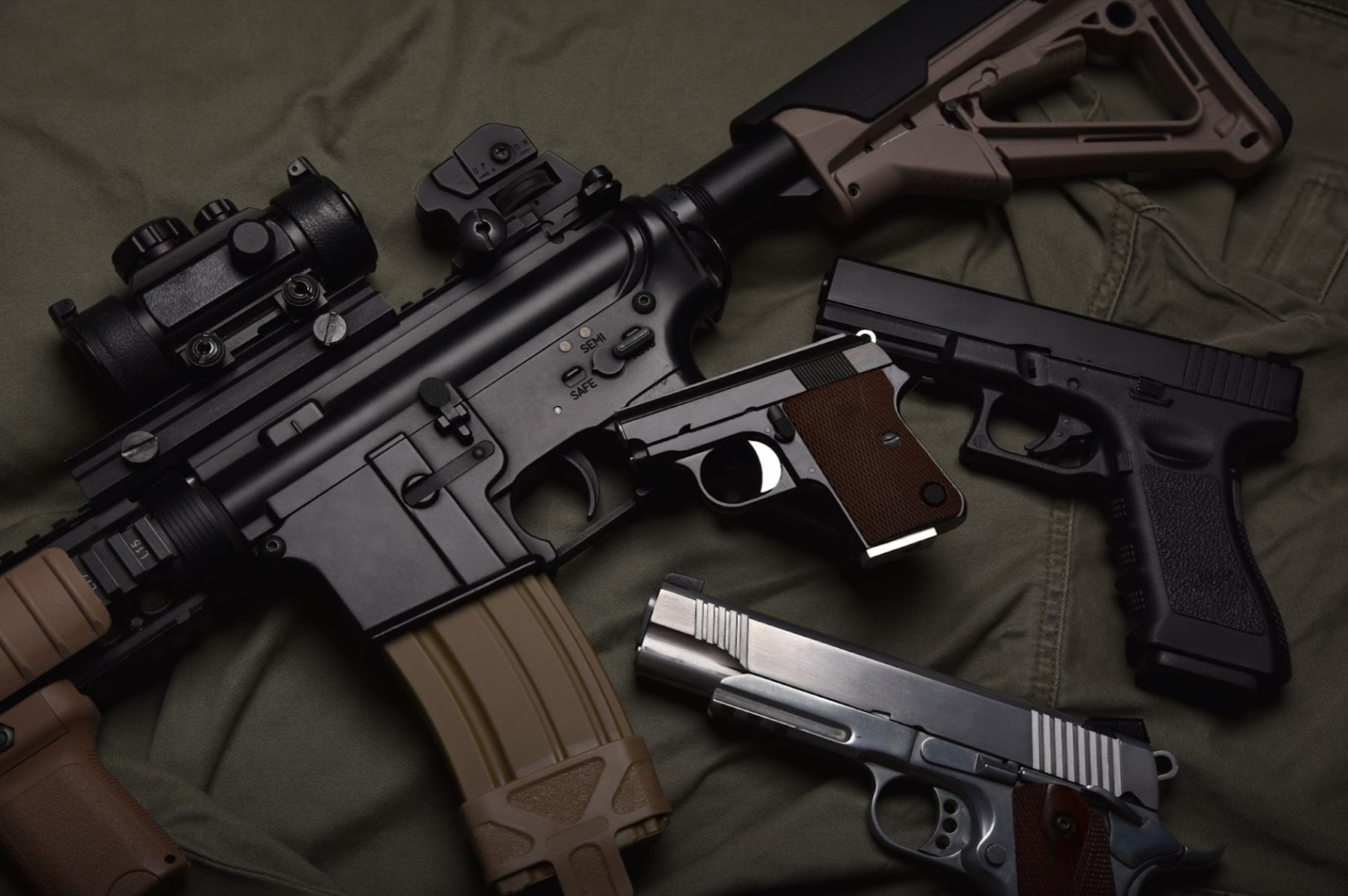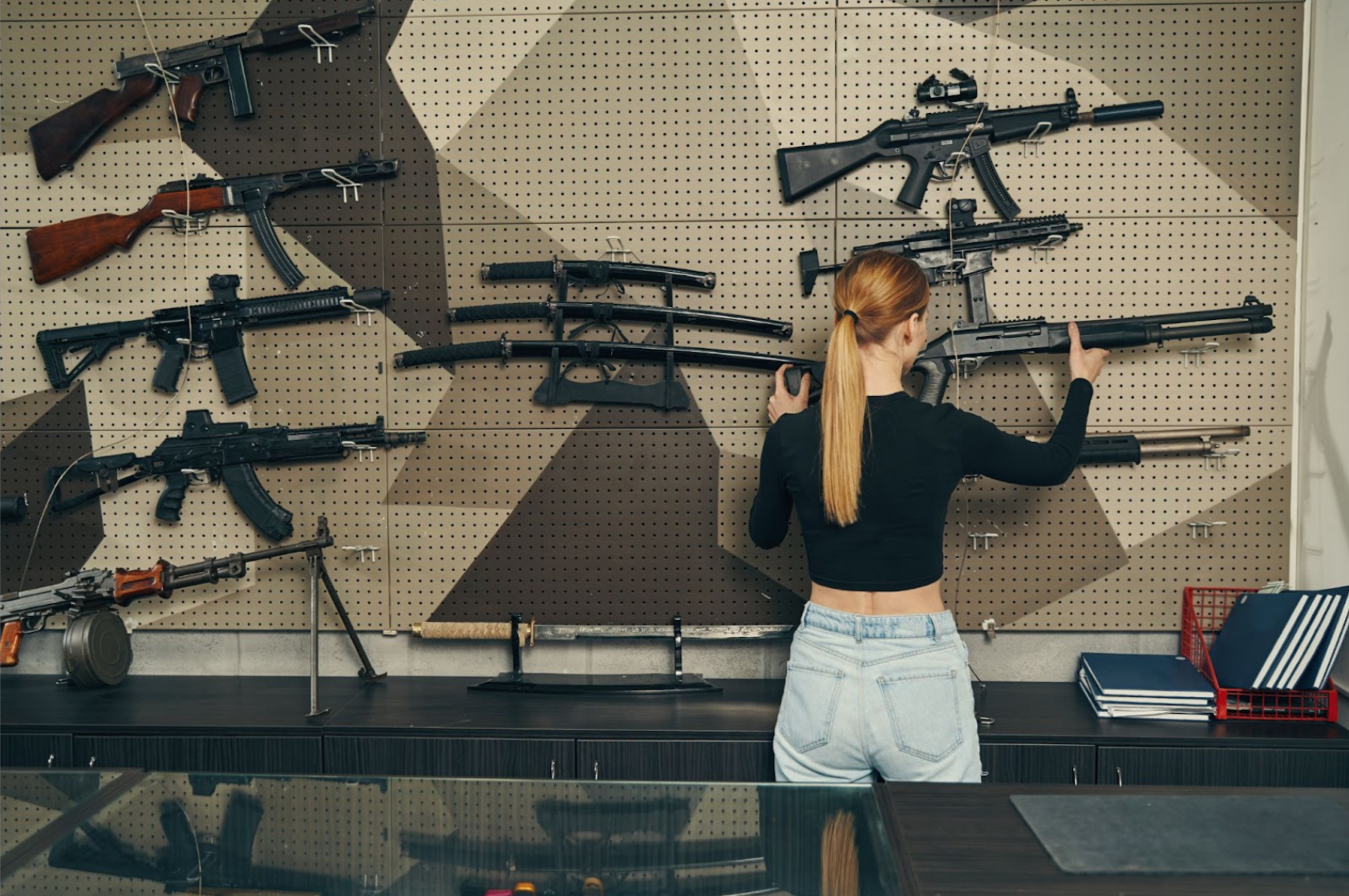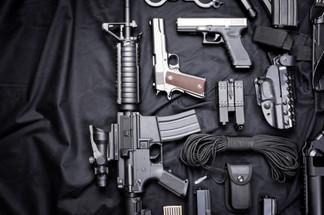Jun 4th 2024
The Basic Types of Guns Every Enthusiast Should Know
The Basic Types of Guns Every Enthusiast Should Know
Guns are a fascinating subject for enthusiasts around the world. With various types designed for different purposes, anyone interested in firearms must understand the basic categories.
Each type has its unique characteristics, applications, and handling requirements. Whether you're a beginner looking to learn more about firearms or a seasoned enthusiast aiming to broaden your knowledge, this guide will walk you through the essential types of guns you should know.
Understanding Gun Types
As we venture into the diverse world of firearms, we must familiarize ourselves with the basic types of guns that every enthusiast should know. This foundational knowledge enriches our understanding and guides us in making informed choices and discussions within the gun community. Let's delve into the details of each category, highlighting their unique characteristics and applications.
1. Handguns for Compact Power
Handguns are known for their compact size and versatility. They come in two primary categories: revolvers and semi-automatic pistols. Revolvers have a cylinder that holds the ammunition and rotates as the gun is fired, offering reliability and simplicity. Semi-automatic pistols, on the other hand, use a magazine to store ammunition, automatically rechambering a new round after each shot. It makes them faster to reload and capable of holding more rounds than revolvers. Both types are popular for personal defense, law enforcement, and sports.
2. Rifles for Distance and Precision
Rifles are designed for accuracy and distance, making them the go-to choice for hunting, target shooting, and military use. Key types include bolt-action rifles, known for their reliability and precision; semi-automatic rifles, which automatically reload after each shot for quicker firing sequences; and lever-action rifles, offering a balance of speed and accuracy with their distinctive cocking mechanism. Each type brings something unique from range and accuracy to application.
3. Shotguns for Versatile Force
Shotguns stand out for their versatility and power. They can fire various types of ammunition, from single slugs to multiple small pellets, making them suitable for hunting, sport shooting, and self-defense. The main types include break-action shotguns, which are simple and reliable with a hinged opening; pump-action shotguns, known for their rapid reload capability; and semi-automatic shotguns, which cycle shells automatically to increase firing speed. Shotguns are appreciated for their adaptability in various shooting disciplines.
4. Submachine Guns for Rapid-Fire Control
Submachine guns combine the compact size of a handgun with the rapid-fire capability of a rifle. They are typically chambered for pistol cartridges and are designed for close-quarters combat, offering a high rate of fire. While not as common for civilian use, they are significant in military and law enforcement. Their design prioritizes the rate of fire and ease of control, making them effective in tight situations.
5. Assault Rifles for Power Meets Speed
Assault rifles are a category of military firearms designed to balance the rapid-fire capability of a submachine gun with the range and accuracy of a rifle. They are capable of selective fire, which means they can switch between semi-automatic and fully automatic firing modes. Assault rifles are central to modern military forces, designed for versatility and effectiveness in various combat situations.
6. Light Machine Guns for Sustained Support
Light machine guns can provide sustained rapid-fire support in combat situations. They are designed to be operated by a single individual and are lighter than their heavier counterparts, making them more mobile. These guns are essential for suppressing enemy positions and providing cover fire for maneuvering units. They bridge the gap between individual firearms and heavy support weapons.

Understanding Gun Safety
Emphasizing gun safety is paramount for anyone involved with firearms. Proper handling, storage, and usage are critical to ensuring the user's and others' safety. Knowledge of and adherence to safety practices are the foundation of responsible gun ownership, reflecting a commitment to safeguarding oneself and the community. One should always remember the significance of safety in enjoying shooting sports and handling firearms responsibly.
Historical Evolution of Firearms
Firearms have come a long way since the advent of gunpowder. Early hand cannons paved the way for the development of rifles, pistols, and shotguns, each evolving to meet the demands of their time in warfare and civilian life. Innovations such as rifling, the percussion cap, and smokeless powder have dramatically changed how firearms are used and their effectiveness. Understanding this history enriches our appreciation of modern guns and the ingenuity behind their design.
Modern Innovations in Gun Technology
The 21st century has seen remarkable advancements in firearm technology. Smart guns, designed to fire only when recognized by an authorized user, aim to enhance safety. Modular firearms systems allow for customization and adaptation to various needs, reflecting the versatility demanded by today's gun owners. Improvements in ammunition, including non-toxic and environmentally friendly options, demonstrate the industry's response to contemporary concerns. These innovations signify a future where firearms continue to evolve in functionality and safety.
Firearm Maintenance and Care
Maintaining a firearm ensures its safety, reliability, and longevity. Regular cleaning removes residue and prevents corrosion, while proper storage protects against environmental damage and unauthorized access. Routine inspections can identify potential issues before they compromise the gun's functionality. Simple practices, like properly cleaning solutions and storing firearms in a dry, secure place, can significantly extend their life and performance.
The Role of Firearms in Competitive Sports
Competitive shooting sports offer a platform for enthusiasts to test their skills and precision. From the precision and endurance required in biathlon to the quick reflexes needed in trap and skeet shooting, these sports highlight the diverse capabilities of different firearms. Competitions also foster a community of respect, discipline, and continuous improvement among shooters, contributing to the overall culture and appreciation of firearms.
Legal and Ethical Considerations
Navigating the legal landscape of firearm ownership is essential for any gun enthusiast. Laws vary widely by region, affecting everything from ownership rights to carry permits. Ethical considerations, particularly in hunting, underscore the importance of sustainable practices and respect for wildlife. Staying informed and compliant with these laws and ethical guidelines is fundamental to responsible gun ownership and community safety.
Emphasizing Education and Training in Different Gun Types
At the heart of gun enthusiasm lies the importance of education and training. Mastering the different types of guns, understanding their specific safety protocols, and maintaining them correctly ensures that firearms are used responsibly and enjoyably.
This commitment to continuous learning and skill enhancement boosts personal safety and nurtures a culture of respect and responsibility within the gun community. Prioritizing education and comprehensive training across all gun types is essential, reinforcing the ethical and safe use of firearms and fostering a knowledgeable, secure environment for enthusiasts everywhere.

Choosing the Right Gun for Your Needs
Selecting the correct firearm is a crucial decision that hinges on several key factors. The intended use—hunting, personal defense, or sport shooting—greatly influences the type of gun one should choose. Ergonomics and comfort play a significant role in handling and accuracy, while caliber and power need to match the shooting activity.
Maintenance requirements also vary across gun types, making ease of care an important consideration. Understanding these aspects ensures a well-informed choice, aligning the firearm with the user's needs and capabilities.
The Impact of Gun Culture on Society
Firearms are unique in cultural history, symbolizing freedom, self-reliance, and tradition across various societies. Their portrayal in literature and film spans a broad spectrum, reflecting heroic deeds, personal empowerment, and, at times, the darker aspects of human nature. Beyond entertainment, gun culture has influenced the development of sporting traditions, historical reenactments, and community events, embedding itself in the social fabric of many regions. It has shaped laws, individual rights, and public discourse, demonstrating firearms's complex role in cultural identity and heritage.
This dual role underscores the importance of responsible ownership and the need for balanced dialogue on firearms' place within society. It urges a respectful and informed approach to navigating the intersections of gun ownership, cultural values, and community safety.
Technological Advances in Ammunition
The evolution of ammunition is a testament to the continual pursuit of improved performance and safety in firearms. Modern advancements have led to bullets with increased accuracy, reduced lead contamination, and minimized risk of collateral damage. Propellants have also evolved, offering cleaner burning options that extend the firearm's life.
Eco-Friendly Innovations in Shooting Sports
In the quest for a greener future, the shooting sports industry is pioneering environmentally friendly alternatives. From non-toxic primers to biodegradable wads for shotguns, these innovations not only enhance the shooting experience but also address pressing environmental and health concerns.
The Global Perspective on Gun Ownership
Gun ownership varies widely across the globe, reflecting a mosaic of regulations, cultural attitudes, and societal impacts. In some countries, strict laws and cultural norms limit access to firearms, while in others, gun ownership is deeply intertwined with national identity and personal rights. This diversity offers valuable lessons on balancing individual freedoms and community safety.
Understanding the global perspective on firearms can broaden one's appreciation of gun ownership's complexities and its societal implications.
Visit our Gunline Shooting blog today to explore a world of expert advice, cutting-edge gear, and a community that shares your enthusiasm for all things guns.

